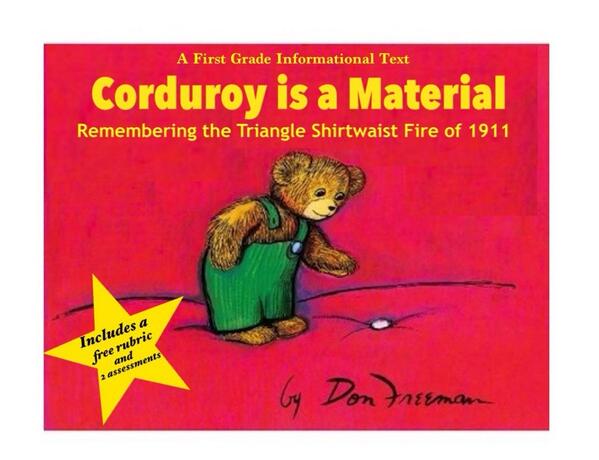The Common Problem With Common Core

With the intensive academic restructuring many people may not, however, have picked up on the ways in which Common Core is transforming the literary curriculum in schools. Common Core attempts to enforce “high standards that are consistent across states…to ensure that all students have the skills and knowledge necessary to succeed in college, career, and life upon graduation from high school, regardless of where they live,” according to the official website.
Nearly gone are the days of state-designated coursework; in its place are standards that have been so problematic to implement that some states—such as Indiana—have chosen to abandon Common Core altogether. The newly standardized curriculum aims to narrow the education gap from state-to-state and school-to-school in hopes of democratizing American education.
Yet, in hopes of making students college-ready, schools may be depriving students of many foundational learning experiences that help get them there. Future generations educated in the era of Common Core may arrive at college having never read “The Great Gatsby,” “The Scarlett Letter” or “Hamlet.” While all of these texts are still included in the list of possible texts, the new emphasis on nonfiction works like “Mathematical Illiteracy and Its Consequences,” “Politics and the English Language” and “Google Hacks: Tips & Tools for Smarter Searching” may take the place of some classic literature.
READ MORE: Common Core Is Now In Session
“English teachers have worried that important literature will be shunted aside in favor of historical documents, or even technical or scientific texts,” reported Sarah Garland after extensive research on Common Core. Despite reassurances from Susan Pimentel, a co-writer of the English standards for Common Core, that “70 percent of student reading across the grade should be informational,” rather than English classes having to devote 70 percent of their time to informational texts, the reduced study of classical literature remains a cause for concern.
Even though Shakespeare remains a mandatory piece of Common Core curricula, the new emphasis on non-fiction texts containing scientific and historical information detracts from the entire idea of English classes. English classes are intended to inspire a love of reading and make students lifelong readers—not to become a way to sneak science, history and math into more of the school day.
Even if students are responsive to the interweaving of various subjects into English lessons, “critics have asked whether it’s appropriate for English teachers, trained in literature and literary techniques, to present historical material that previously might have been a part of a social studies unit on the Civil War,” according to Garland.
Despite Common Core’s stated intention “to ensure that all students have the skills and knowledge necessary to succeed in college, career, and life upon graduation from high school,” the curricula falls short in its attempt to drive college-readiness before students have not yet mastered elementary, middle and high school.
READ MORE: Educators Find Common Ground With Common Core
Swapping the exposure of young minds to great works of literature for college-ready, non-fiction reading is worrisome, but even more disconcerting is that students’ could lose the opportunity to develop empathy and compassion while in school. As a study by Emanuele Castano and David Comer Kidd found, “after reading literary fiction, as opposed to popular fiction or serious nonfiction, people performed better on tests measuring empathy, social perception and emotional intelligence.”
While some could argue that Common Core is simply adapting to the demands of increasingly rigorous academic standards, the fact remains that by deemphasizing the study of classic literature, schools will be furthering the demise of old fashioned creativity and compassion. Traditionally, schools have played an integral role in exposing students to the joys of reading and encouraging them to begin crafting stories and creative works of their own. With today’s increasing technological emphasis, however, students are spending more time in front of screens, watching television and playing violent video games.
Now more than ever, perhaps, students depend on exposure to literature and other empathy-evoking texts to foster compassion and understanding to help counteract the violence and aggression so often portrayed in the media. When multiple scientific studies report a decrease in empathy among American college students in the past four decades, with the most noticeable declines having occurred in the past decade, taking actions that may further depress empathy levels may be unwise. Furthermore, a 2012 Brown Center Report based on an empirical analysis predicted "that the CCSS will have little to no impact on student achievement." Students go to school to develop more than just technical, career-oriented skills, but also to develop the interpersonal and creative abilities to be most successful in their futures.
READ MORE: Public Opinion Shifting On Using Test Scores To Evaluate Teachers
No, replacing a novel by Louis Erdich about the plight of Native Americans as the reservation system begins to fall apart with a non-fiction text covering the same issue will not directly result in a students’ diminishing creativity, but why not add to it? No, removing 10 minutes a day of creative writing for the discussion of scientific articles will not necessarily make children more noticeably self-absorbed, but why not proactively combat it? Common Core is not the enemy, nor is classical literature the answer to all the earth’s ailments, but, these findings should be enough to make teachers and parents reconsider what we are emphasizing in the schools.
It may be harder to measure empathy and creativity than it is to measure academic test scores, but these abilities are no less important. Schools are just as responsible for raising kind, innovative students as they are for raising those who can score well on the SAT.
Yes, preparing students to be successful in college is important, but we have a responsibility to be doing more than that; we have a responsibility to be preparing students for life.
Contact Senior News Editor Sara Newman here. Follow her on Twitter here.



